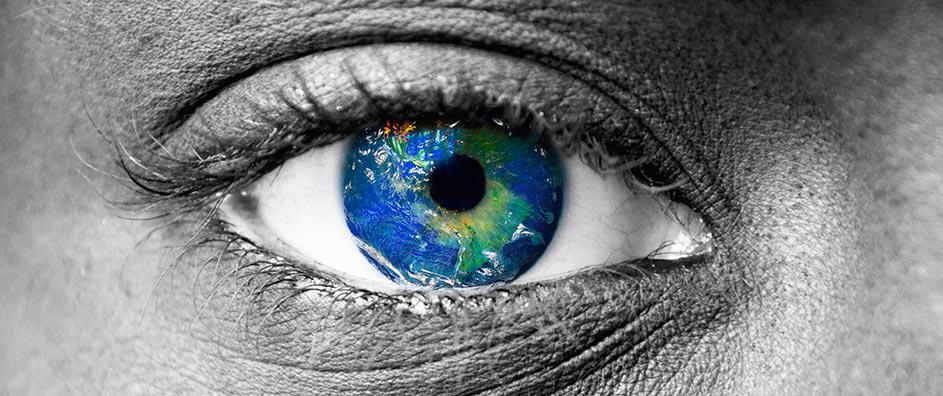The Bahá’í Faith, with its rich and multifaceted teachings, presents a radical reconfiguration of human understanding, orienting individuals toward a profound global vision of oneness. This worldview, steeped in the tenets articulated by Bahá’u’lláh, the founder of the Bahá’í Faith, transcends mere ideological constructs and seeks to cultivate an integrated and harmonious existence for humanity as a collective entity. In this exploration, the essence of the Bahá’í worldview will be delineated, emphasizing its implications for societal transformation, spiritual evolution, and the underlying principles of unity and interconnectedness.
At the core of the Bahá’í teachings lies the principle of the oneness of humanity. This doctrine posits that all human beings, regardless of their race, nationality, or creed, constitute a single global family. This conviction serves as both a philosophical foundation and a moral imperative, urging individuals to transcend prejudices and divisive barriers that have historically fractured societies. The exploration of this principle invites a shift in perspective, encouraging a collective embrace of diversity as an asset rather than a liability.
This tenet of oneness is intricately linked to the concept of a universal Peace. The Bahá’í worldview asserts that peace is not a mere absence of conflict but a dynamic reality requiring active engagement, empathy, and the cultivation of just relationships. The possibility of global peace is undergirded by systemic changes in societal structures, wherein justice, equity, and cooperation are prioritized over competition and discord. This approach to peace challenges conventional paradigms, stimulating curiosity about the methods and practices that can facilitate a transition toward peaceful coexistence.
The notion of progressive revelation is another critical component that underlines the Bahá’í worldview. It posits that God’s guidance is a continuum, unfolding gradually over time through the manifestations of divine will, such as Krishna, Moses, Jesus, Muhammad, and Bahá’u’lláh himself. This evolutionary understanding of religious truth emphasizes the importance of context in cultivating spiritual knowledge and acknowledges the validity of the myriad faiths that have shaped human thought throughout history. By embracing this perspective, individuals are encouraged to engage in interfaith dialogue, fostering a spirit of inquiry and respect towards the beliefs of others.
The interconnectedness of all humanity is further emphasized through the Bahá’í teachings on the role of children and youth in society. The Bahá’í Faith affirms the potential of the younger generation as exemplars of unity and as catalysts for social transformation. Their inherent ability to embrace diversity, coupled with their innovative spirits, positions them as vital agents in the quest for a unified world. This emphasis on youth invites a reconsideration of traditional educational paradigms and societal values, prompting inquiries into how best to nurture these qualities in emerging leaders.
Furthermore, the Bahá’í worldview accentuates the interconnectedness of spiritual and material progress. It contends that true development cannot occur without the coalescence of spiritual aspirations with practical endeavors. This holistic vision advocates for a dual approach to advancement: promoting spiritual virtues that foster a sense of purpose, while simultaneously addressing the material needs of communities. This synthesis challenges prevailing notions that tend to separate the sacred from the secular, opening avenues for integrated approaches to development.
In light of environmental concerns that besiege contemporary society, the Bahá’í Faith offers a prophetic voice regarding the stewardship of the planet. It embraces the concept of the Earth as a shared heritage, necessitating a collaborative approach in addressing ecological crises. The prevailing consumerist attitudes that fuel environmental degradation are countered by the Bahá’í teachings, which advocate for responsible environmental practices rooted in ethical considerations and communal responsibility. This shift towards ecological consciousness not only preserves the planet for future generations but also aligns with the larger narrative of global unity.
Moreover, the Bahá’í Faith recognizes the necessity of establishing a universal language of communication to enhance understanding among diverse cultures. Such an endeavor is seen as instrumental in fostering a global identity that transcends local and national allegiances. Initiatives that promote linguistic inclusivity serve to democratize knowledge and encourage cultural exchange, thereby enhancing mutual respect and collaboration. This vision of a common communicative framework prompts a deeper reflection on how language can bridge divides and foster a greater sense of interconnectedness.
As humanity stands at the crossroads of unprecedented challenges and opportunities, the Bahá’í worldview beckons individuals to reassess their roles within the broader tapestry of life. The teachings provide a comprehensive lens through which to view our interconnected existence: one that embraces diversity, champions justice, and advocates for sustainable practices. Through the lens of the Bahá’í Faith, the promises of a more harmonious world beckon, urging individuals to cultivate an understanding of oneness, to engage in meaningful dialogue, and to act with compassion and equity in the face of adversity.
Ultimately, the Bahá’í teachings serve not only as a philosophical framework but as a compelling call to action. They challenge each person to envision a world where unity is the foremost endeavor, a society where the flourishing of humanity is intrinsically linked to the principles of justice, love, and mutual respect. The Bahá’í worldview invites one to partake in this transformative journey, fostering a spirit of curiosity and commitment to the oneness of humankind.
